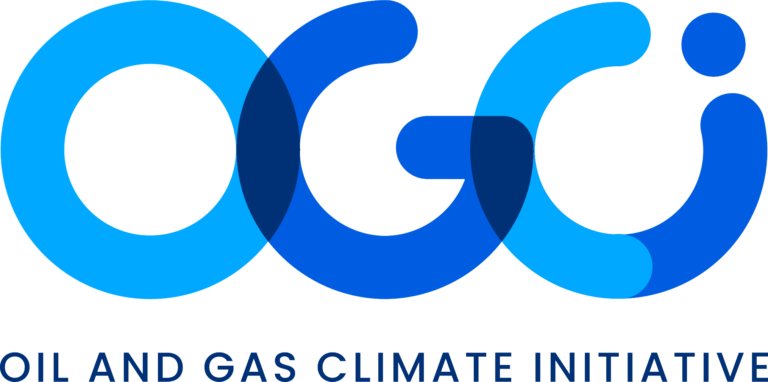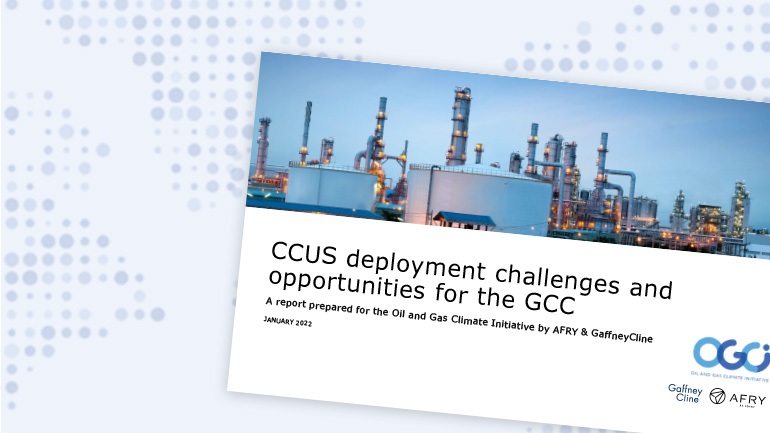OGCI commissioned a white paper study from AFRY and GaffneyCline to explore the potential of carbon capture, usage and storage (CCUS) as a cost-effective decarbonization solution for GCC. It followed an earlier OGCI study focused on CCUS deployment challenges and opportunities in Saudi Arabia.
The GCC countries have a prevalence of high purity CO2 emitting industries such as natural gas processing, fertilizer, and petrochemical sectors. These provide significant advantages for leveraging CCUS as a decarbonization tool. The study identified the following opportunities for deploying CCUS in the GCC countries:
- CCUS has promising applications across multiple industrial activities and at a lower cost compared to other regions.
- There is significant storage potential close to emissions clusters. This could also support cost-effective direct air capture.
- The region has potential for many promising large-scale CCUS hubs, with cross-border cooperation providing additional options.
The study found that the GCC could use CCUS to become a global leader in low carbon hydrogen production and export of low carbon goods, which could translate into significant gross value added by 2050. Additionally, the deployment of CCUS could support maintaining and the creation of highly skilled jobs in various economic sectors.
To realise the significant value offered by CCUS, and hydrogen in the GCC, the study recommends immediate action to include the development of the first projects and hubs, and the development of transport and storage (T&S) infrastructure. From 2030 onwards the focus should be on scaling up to commerciality, building on successful pilots and matching market demand with development. Over the longer term, the introduction of market mechanisms could unlock the potential to deliver CCUS cost-effectively on a large scale.
The study demonstrates that CCUS deployment in GCC countries could unlock significant economic potential in the region.



